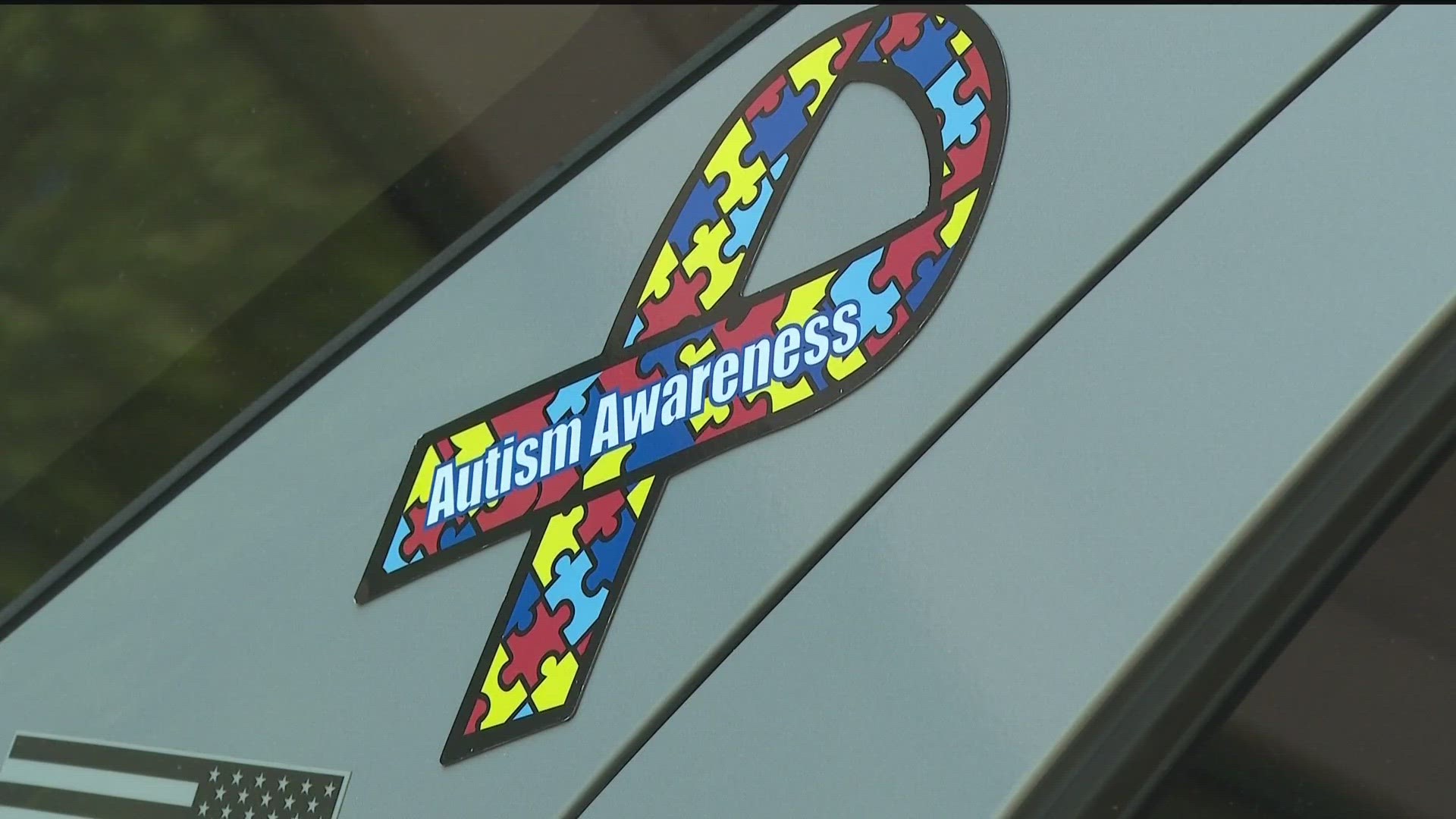DUNWOODY, Ga. — Dunwoody Police Sgt. Michael Cheek said all officers take some form of de-escalation training, which includes handling autism cases.
It's an issue that's personal for Cheek, as he is the father of a boy diagnosed with autism spectrum disorder (ASD).
According to the Centers for Disease Control and Prevention, one in 36 people is diagnosed with ASD in the United States, a rate near double what it was just a decade ago and still growing.
Cheek, who says other members of the Dunwoody Police Department have relatives and friends who have autism, said policing has had to adjust its techniques and training in response to increasing autism diagnosis rates.
"We recognize that's an issue and it's not an issue that's getting better any time soon," Cheek said. “We recognize the need to have our officers trained up and have the ability to actually learn to recognize what autism is and how to interact with them and do it in the best way we can.”
Cheek said officers typically go to schools to engage with kids as young as five to help them acclimate to officer interactions. He said the police department utilizes state crisis intervention training, and the force works with the Marcus Autism Center and other behavioral health centers to craft specialized training to handle those with autism.
"There are things we might consider deceptive like not necessarily looking you in the eye, but that’s something some autistic people do," Cheek said. “Some autistic people may fidget with their hands or walk back and forth. It’s just a different way of acting for some of them. It all presents itself differently among everybody. Some people are downright scared of us who are on the spectrum. By catching them at an early age and teaching them it’s OK, hopefully, we can make the interactions in the future a lot better and a lot safer.”
Janet Jones-Jordan, senior director of community inclusion with advocacy group Autism Speaks, said people diagnosed with autism spectrum disorder face challenges with social skills, repetitive behavior and non-verbal communication.
"Police officers need to understand how to interact, how to engage, how to de-escalate," Jones-Jordan said. “A lot of times, these adults or even the young children, they may have a fight or flight syndrome. They may reach for shiny objects such as a badge or handcuffs. They may not understand certain commands. A lot of times, they require plenty of time to process information as well as to respond to information.”
While many Metro Atlanta police departments have adopted special training surrounding mental health cases, Jones-Jordan said it can be difficult to track whether this training is working, and it can be challenging to hold police accountable without specific metrics.
Cheek said as more research on ASD comes out, it will improve training overall. For now, the personal nature of these calls convicts Cheek and other officers to strive to make interactions as smooth as possible.
"Being the parent of a child with autism and a police officer puts me in a really unique position to help," Cheek said. "I see both sides of the equation and I understand both sides of the interaction. I think it allows me to maybe bridge that gap between everybody"

